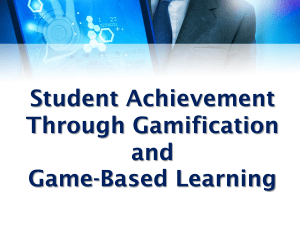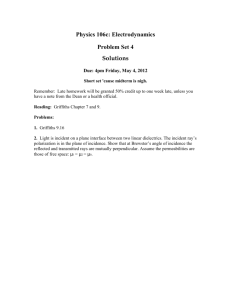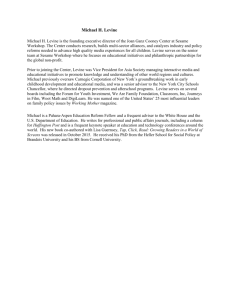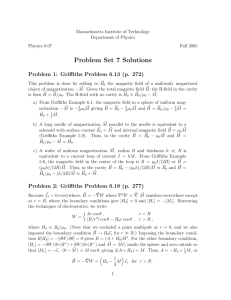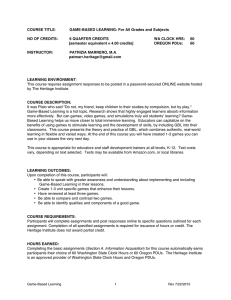EDER 671 GROUP PROJECT - Tech Trend: Digital Game
advertisement
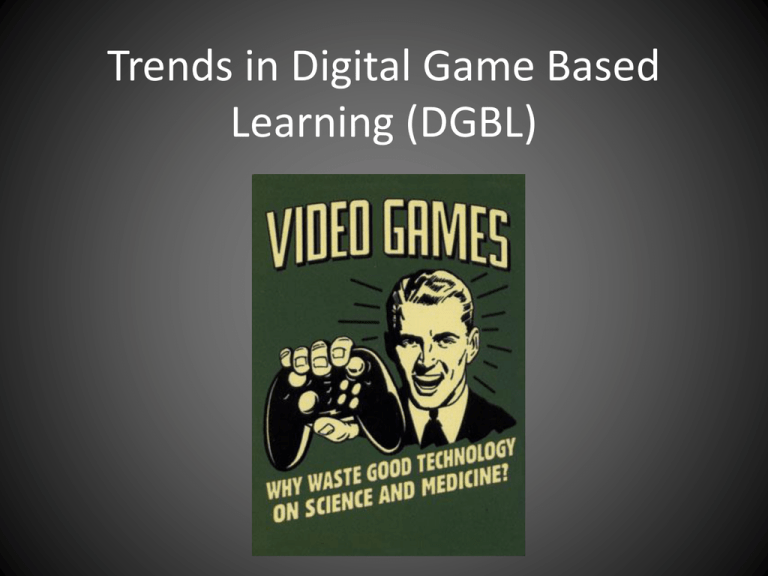
Trends in Digital Game Based Learning (DGBL) What does DGBL mean to you? Brain Training By Daniel Floyd This video was taken from: http://www.youtube.com Chocolate Covered Broccoli Are edu-tainment games like chocolate covered broccoli? Discussion • How do we harness the engagement and enthusiasm for recreational games to enhance learning? • Quick Facts: – To date WoW players have spent 5.93 million years playing online (that's 51,946,800,000 hours) – 3 billion hours spent playing video games globally every week Benefits of DGBL • Tangential learning is possible through welldesigned games. • Games can support collaboration, problemsolving and communication in learning communities. • Games increase engagement as they are designed to have the appropriate balance between success and frustration in order to keep players motivated to persevere. (Flow) Benefits of DGBL • Games often provide instant feedback and reward as students master activities or levels, and give students ownership and control of their own progress. • Integrating game-based learning into the the curriculum allows for increasing computer literacy skills, problem solving skills and real world applications. • Some games require systems thinking whereby students no longer look at things in terms of discrete items. Special Needs Benefits of DGBL • "Griffiths refers to the merits associated with using digital games with special-needs children. For example, he cites a case where video or digital games had a calming effect on a seven-year-old child with autism. Griffiths also provides research data that suggests that adolescents with attention deficit disorder may experience improvements in “grades, sociability, and organizational skills” when using educational video games" (Griffiths, 2003). Evolution of DGBL Evolution of GBL • Game based learning (GBL) has been around for generations. It has evolved from traditional paper and pencil games, card and board games to include various types of digital games. Evolution of GBL Non-digital Edutainment (COTS) Digital non-collaborative Training/Simulation Serious Games • Digital multi-player (MMO) Alternate Reality Games Mobile Gaming Source: Johnson, L., Smith, R., Willis, H., Levine, A., and Haywood, K., (2011). The 2011 Horizon Report.Austin, Texas: The New Media Consortium. Trends in DGBL • Development of serious games by game designers • Games that have a social education component • Engaging learners in game design as part of the learning process • Alternate Reality Games • Use of games on mobile devices • Source: Johnson, L., Smith, R., Willis, H., Levine, A., and Haywood, K., (2011). The 2011 Horizon Report.Austin, Texas: The New Media Consortium. Considerations • Individualized instruction • Meeting Prescribed Learning Outcomes (PLO’s) • Developing 21st Century literacy skills 13 http://education.alberta.ca/media/6509838/pdfimage.jpg Let’s Play! Critical Question How would digital game-based learning be useful in these context? Pick one: (2 Min.) - K-12 - Higher Education - Corporate - Special Needs What Does DGBL Mean For learning? This video was taken from : http://www.youtube.com Questions? THOUGHTS? Today's generation of learners “think and process information fundamentally differently than their predecessors.” (Prensky, 2001). “Game based learning gives teachers the opportunity to speak their language.” (Hvidston, 2011)
